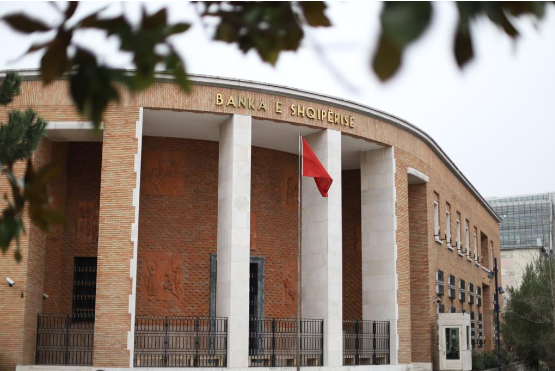The Albanian economy expanded by 4.1% by the end of the third quarter of 2024, according to the latest figures released by the Bank of Albania. This growth, characterized as broad-based across sectors, was driven by strong domestic consumption, rising investment levels, and a robust tourism sector.
The figures are part of the “Financial Stability Report for the Second Half of 2024” published today by the central bank. The report also highlights significant progress in the labor market, with unemployment falling and employment and wages increasing.
Fiscal policy remained consolidative for most of the year, supported by a notable rise in public revenues. Meanwhile, inflationary pressures eased, prompting the Bank of Albania to loosen its monetary policy stance.
Financial activity also developed steadily, despite external economic uncertainties. Deposits and lending expanded, even though the appreciation of the national currency had a dampening effect. Bank capitalization remained solid, and profitability improved markedly.
Despite these positive developments, the Bank of Albania cautions that risks to economic and financial stability persist, primarily due to the uncertain and potentially disruptive impact of global developments. “It remains crucial that public authorities and market participants maintain sufficient financial buffers to ensure the smooth functioning of their operations,” the report states.
Banking Sector Faces Growing Global Uncertainties
While deposits and lending grew, and profits improved significantly in the second half of 2024, the Bank of Albania warns of rising challenges for the banking and financial sectors. Klodian Shehu, head of the Financial Stability Department at the Bank of Albania, pointed to escalating geopolitical tensions and trade conflicts as key sources of uncertainty.
“These developments could result in increased interest rates, renewed inflationary pressures, and ultimately affect both consumption and investment, “ said Shehu. “Our economy could also be impacted.“
Still, the resilience of Albania`s banking system is considered strong based on recent stress tests. “Both stress test exercises indicate that the banking sector remains in good financial health,“ Shehu added. “Nonetheless, given global uncertainties, banks should use this profitable period to strengthen internal control systems and risk management practices.“ The stress tests also revealed that certain segments and institutions within the banking sector are more vulnerable in the event of major external shocks.
World Bank Revises Albania`s Growth Projections Downward
Despite the 3.9% economic growth Albania achieved in 2024 – marking a second consecutive year of stable expansion – outlooks for the near future are less optimistic. The World Bank, in its Spring 2025 Economic Report, projects Albania`s growth to slow to 3.2% in 2025 and further decline to 3.1% in 2026.
The slowdown is attributed to declining external demand, weakening foreign investment, and persistent geopolitical and trade-related uncertainties. The 2024 growth was supported largely by private consumption, remittance from the diaspora, and an expanding volume of household loans.
Regional Context: Western Balkans Also Facing a Slowdown
In a broader regional context, the Western Balkans posted an average economic growth of 3.5% in 2024, with Kosovo and Serbia leading in performance. However, the World Bank projects a regional slowdown to 3.2% in 2025.
Kosovo is expected to maintain the highest growth in the region with a forecasted 3.8% followed by Serbia at 3.5% and Albania at 3.2%. On the other hand, Montenegro and Bosnia and Herzegovina are projected to grow more modestly at 3.0% and 2.7%, respectively. These projections reflect weak external demand and the persistent effects of geopolitical instability in the region, as well as tightening global financial environment.
Policy Recommendations: More Reforms Needed
According to World Bank experts, regional economies remain closely tied to the performance of European markets and are heavily reliant on foreign trade. Consumption and remittances continue to be the main engines of growth. To ensure long-term, sustainable progress, the report recommends deepening reforms to improve the business climate, foster innovation, and reduce reliance on state-owned enterprises.
Albania`s recent economic growth gains present a positive narrative, but underlying risks – from international shocks to domestic structural challenges – underline the importance of proactive, forward – looking policies that can withstand a less favourable global environment.
Written by our correspondent A.T.



